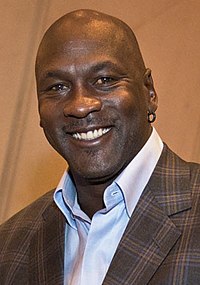
Photo from wikipedia
Previous studies on voting bias in competitive awards have not fully considered the role of cultural similarity. Using data for the Best FIFA Men’s Player Award, we evaluate the extent… Click to show full abstract
Previous studies on voting bias in competitive awards have not fully considered the role of cultural similarity. Using data for the Best FIFA Men’s Player Award, we evaluate the extent of voting bias in this Award using three cultural similarity factors (cultural distance, cultural clusters, and collectivism), six established in-group factors (nationality, club, league, geography, ethnicity, religion, and language) and the impartiality of the voter’s country. Using statistical and econometric methods, we find that voter-player cultural similarity is positively associated with voting bias and find no evidence of impartiality when it comes to cultural or national ties. We also find that media voters are less biased than captain voters and coach voters, and that coaches are less biased than captains.
Journal Title: PLoS ONE
Year Published: 2022
Link to full text (if available)
Share on Social Media: Sign Up to like & get
recommendations!